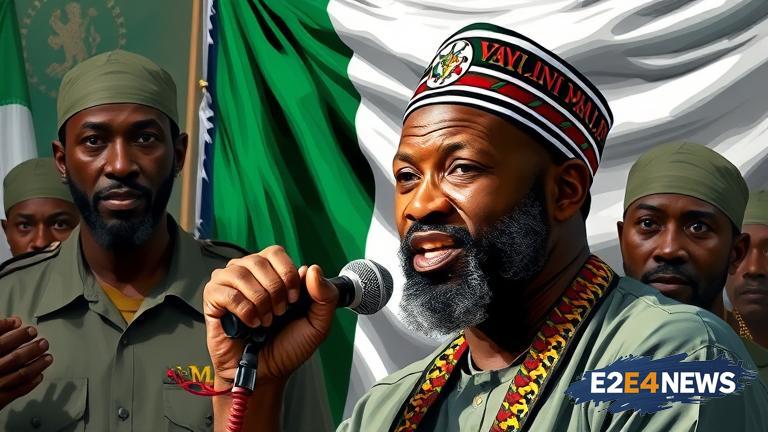The call for the release of Nnamdi Kanu, the leader of the Indigenous People of Biafra (IPOB), has been a longstanding issue in Nigeria. Recently, the Governor of Enugu State, Peter Mbah, has added his voice to the growing list of individuals and groups calling for Kanu’s release. According to Mbah, releasing Kanu is the right thing to do, as it would help to reduce tensions and promote peace in the region. The IPOB leader has been in detention since 2021, when he was arrested and charged with treason. The group has been advocating for the independence of the southeastern region of Nigeria, which they claim has been marginalized and oppressed by the federal government. The Nigerian government has accused the IPOB of being a terrorist organization, and has taken steps to crack down on its activities. However, many Nigerians and international observers have criticized the government’s handling of the situation, arguing that it has only served to exacerbate the crisis. The call for Kanu’s release has been echoed by many Nigerians, including politicians, activists, and ordinary citizens. They argue that his detention is a violation of his human rights, and that it is unfair to keep him in prison without a fair trial. The Nigerian government has been under pressure to find a peaceful solution to the crisis, and releasing Kanu could be a step in the right direction. The IPOB has been accused of being responsible for a number of violent attacks in the region, but the group has denied these allegations. The Nigerian military has also been accused of human rights abuses in its crackdown on the IPOB, including extrajudicial killings and torture. The situation in the southeast has been tense for many years, with many residents feeling marginalized and excluded from the political process. The call for Kanu’s release is seen as a way to address some of these grievances, and to promote peace and stability in the region. However, the Nigerian government has been reluctant to release Kanu, citing concerns about national security and the rule of law. The government has also accused the IPOB of being a threat to the unity and stability of the country. Despite these concerns, many Nigerians believe that releasing Kanu is the right thing to do, as it would help to reduce tensions and promote peace. The international community has also been watching the situation closely, with many countries and organizations calling for a peaceful resolution to the crisis. The United States, the European Union, and the United Nations have all expressed concerns about the human rights situation in Nigeria, and have called on the government to respect the rights of all citizens. The call for Kanu’s release is seen as a test of the Nigerian government’s commitment to human rights and the rule of law. If the government is willing to release Kanu and engage in dialogue with the IPOB, it could be a significant step towards resolving the crisis. However, if the government continues to refuse to release Kanu, it could lead to further tensions and instability in the region. The situation is complex and multifaceted, and there are no easy solutions. However, releasing Kanu could be a step in the right direction, and could help to promote peace and stability in the southeast. The Nigerian government needs to find a way to address the grievances of the IPOB and other marginalized groups, and to promote a sense of inclusivity and belonging among all citizens. This will require a willingness to listen to different perspectives, and to engage in dialogue with all stakeholders. The call for Kanu’s release is just one part of a larger conversation about the future of Nigeria, and the need for greater inclusivity and respect for human rights.
